10 Best Joint-Friendly Exercises To Do As You Age
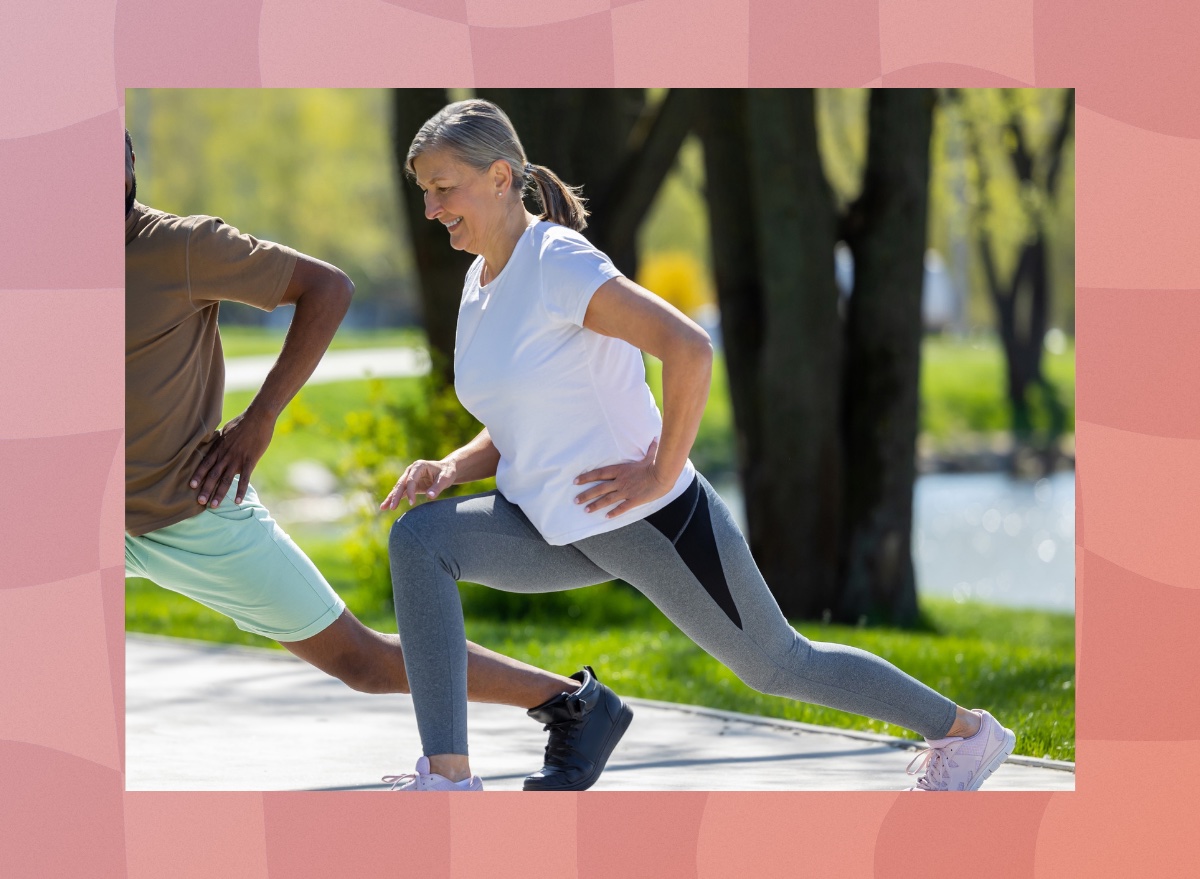
As you age, maintaining an active lifestyle becomes increasingly essential for your overall health and well-being. However, it's equally as crucial to choose exercises that are gentle on the joints to prevent discomfort, injury, and exacerbation of existing conditions. These joint-friendly exercises not only help preserve mobility but also contribute to strength, flexibility, and mental well-being. Whether you're a senior striving to stay fit or someone of any age looking to safeguard joint health, I recommend adding these specific joint-friendly exercises to your routine for a significant difference.
Performing the below exercises can help you maintain mobility, prevent injury, and improve your overall quality of life as you grow older. Remember to start slowly, listen to your body, and consult with a healthcare professional before beginning any new exercise program—especially if you have pre-existing health conditions or concerns. With consistency and dedication, you can enjoy the benefits of staying active and healthy for years to come.
Keep reading for the best joint-friendly exercises to do as you age. And when you're finished, be sure to check out the 6 Best Pilates Exercises to Improve Your Balance & Coordination.
Walking Lunges
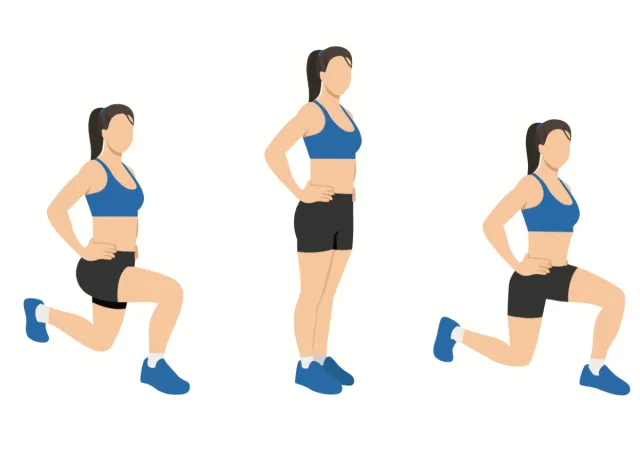
The first of these joint-friendly exercises is the walking lunge. Walking lunges are an excellent exercise for strengthening the lower-body muscles while enhancing balance and stability. This exercise engages multiple muscle groups simultaneously, including the quadriceps, hamstrings, glutes, and calves.
By performing walking lunges regularly, you not only improve muscle strength but also challenge your coordination and proprioception, crucial aspects of functional fitness. Furthermore, since lunges can be done without equipment, they are accessible to individuals of all fitness levels and can be easily modified to suit individual needs.
Stand tall with your feet together and your hands on your hips. Take a step forward with your right leg, lowering your body until both knees are bent at a 90-degree angle. Push off your right foot to return to the starting position. Repeat on the opposite side, alternating legs for a set number of repetitions (e.g., 10 lunges per leg). Aim for two to three sets of walking lunges, gradually increasing the number of repetitions as you build strength.
Seated Leg Extensions
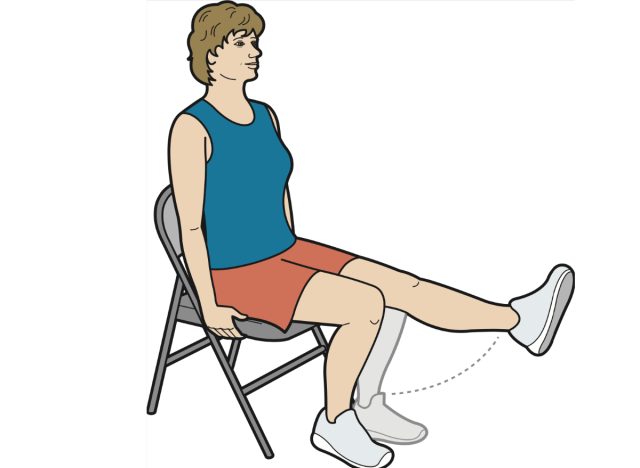
The seated leg extension is an effective exercise for targeting the quadriceps muscles without placing undue stress on the knees. This exercise is particularly beneficial for individuals with knee issues or those recovering from injury, as it isolates and strengthens the muscles of the front thigh. By incorporating seated leg extensions into your workout routine, you can improve lower-body strength, enhance knee stability, and support joint health.
Sit upright on a chair with your feet flat on the floor. Extend one leg straight out in front of you, keeping the knee slightly bent. Hold for a moment, then lower the leg back down. Repeat with the other leg. Aim for two to three sets of 10 to 12 repetitions per leg.
Water Walking
Water walking is a refreshing and joint-friendly exercise that provides resistance to strengthen muscles and improve cardiovascular health. This low-impact activity is ideal for individuals with arthritis, joint pain, or mobility limitations, as the buoyancy of water reduces stress on the joints while still providing a challenging workout. Additionally, water walking can be performed in both shallow and deep water, allowing for versatility and customization based on individual fitness levels and preferences.
Stand in waist-deep water with your arms by your sides. Walk forward, focusing on engaging your core and pumping your arms. Maintain a brisk pace for 10 to 15 minutes. Increase the duration or intensity as your fitness improves.
Chair Yoga Seated Twists
Chair yoga seated twists offer a gentle yet effective way to improve spinal mobility and alleviate stiffness in the back. This exercise helps release tension in the spine, shoulders, and neck while promoting relaxation and stress relief. By incorporating seated twists into your daily routine, you can enhance flexibility, reduce discomfort, and support overall spinal health.
Sit tall in a chair with your feet flat on the floor and your hands resting on your knees. Inhale as you lengthen your spine, then exhale and twist to the right, placing your left hand on the outside of your right knee and your right hand on the back of the chair. Hold the twist for a few breaths, then return to the center and repeat on the other side. Aim for two to three sets of five to eight repetitions per side, gradually increasing as tolerated.
Resistance Band Leg Press
The resistance band leg press is a versatile exercise that targets the muscles of the lower body while providing joint-friendly resistance. This exercise mimics the motion of a traditional leg press machine but can be done anywhere with a resistance band, making it convenient for home workouts or travel. By incorporating resistance band leg presses into your routine, you can improve lower-body strength, enhance muscle tone, and support joint stability.
Sit tall on a chair with a resistance band looped around one foot and anchored behind you. Extend the leg forward, pressing against the resistance of the band. Slowly bend the knee to return to the starting position. Complete two to three sets of 10 to 12 repetitions per leg, gradually increasing the resistance of the band as needed.
Wall Pushups
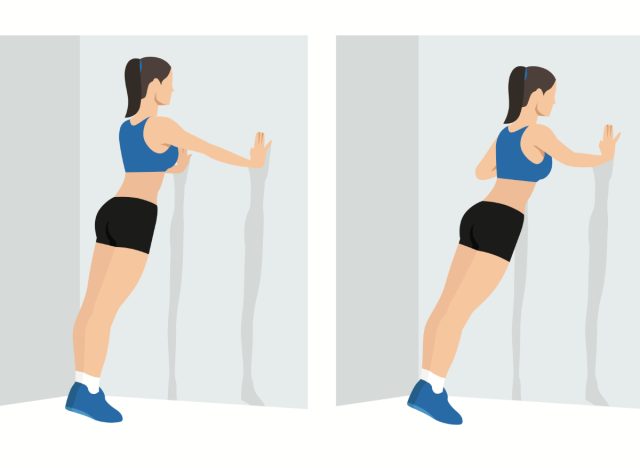
Wall pushups are a modified version of traditional pushups that provide an excellent upper-body workout while being gentle on the joints. This exercise targets the chest, shoulders, and triceps, helping to build strength and endurance without requiring any equipment. Wall pushups can be easily adjusted to suit individual fitness levels, making them suitable for beginners and experienced exercisers alike.
Stand facing a wall with your arms extended at shoulder height and your palms flat against the wall. Lean forward and bend your elbows to lower your chest toward the wall. Push back to the starting position, keeping your body in a straight line. Complete two to three sets of eight to 12 repetitions, adjusting the distance from the wall to increase or decrease resistance.
Standing Calf Raises
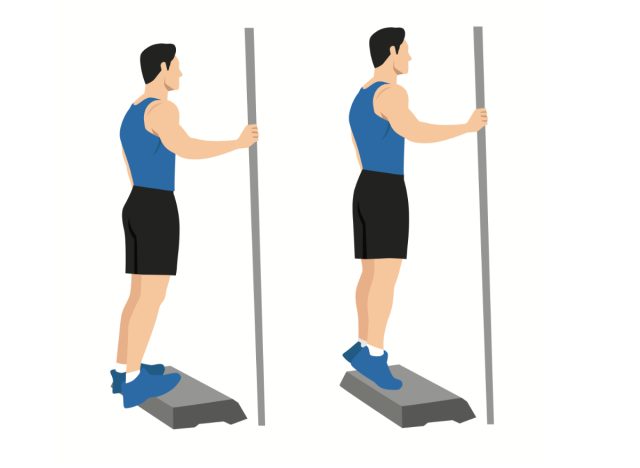
Next up on this list of joint-friendly exercises is the standing calf raise. Standing calf raises are an effective exercise for strengthening the calf muscles and improving ankle stability. This exercise targets the muscles of the lower legs, including the gastrocnemius and soleus, which are important for balance and mobility. By incorporating standing calf raises into your routine, you can reduce the risk of ankle injuries, improve lower-body strength, and support overall joint health.
Stand tall with your feet hip-width apart and your hands resting on a stable surface for balance. Rise onto the balls of your feet, lifting your heels as high as possible. Hold for a moment, then lower your heels back down. Complete two to three sets of 12 to 15 repetitions, gradually increasing as tolerated.
Supine Leg Lifts
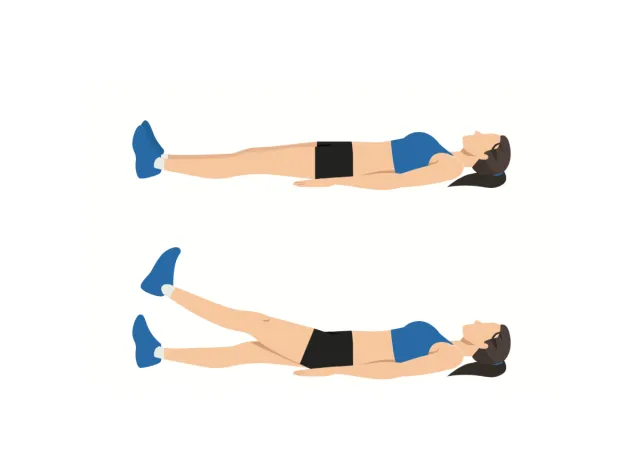
Supine leg lifts are a simple yet effective exercise for targeting the muscles of the lower abdomen and hips. This exercise can help improve core strength, stability, and balance while reducing the risk of lower back pain. Supine leg lifts can be done virtually anywhere, making them a convenient addition to your daily routine.
Lie on your back with your legs extended and your arms by your sides. Lift one leg toward the ceiling, keeping the knee straight but not locked. Lower the leg back down with control. Repeat with the other leg. Aim for two to three sets of 10 to 12 repetitions per leg, focusing on slow and controlled movements to engage the targeted muscles effectively.
Bicep Curls with Light Weights
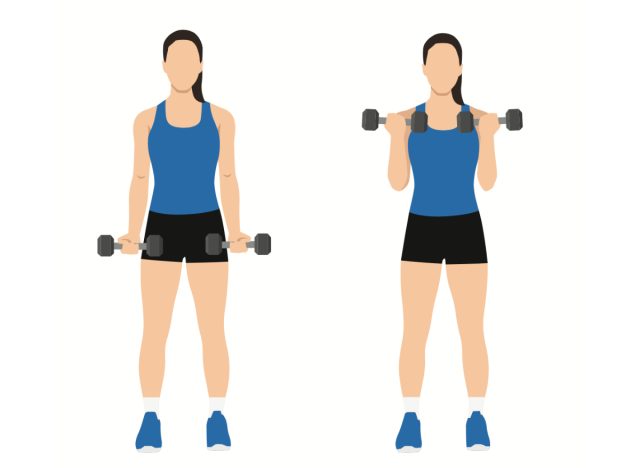
Bicep curls with light weights are a simple yet efficient way to strengthen the muscles in the arms without placing excessive strain on the joints. This exercise targets the biceps brachii, the primary muscle in the front of the upper arm, helping to improve arm strength and functionality. By incorporating bicep curls into your routine, you can enhance your ability to perform daily tasks that require arm strength, such as lifting groceries or carrying objects.
Stand tall with your feet shoulder-width apart and a light dumbbell in each hand, palms facing forward. Bend your elbows to curl the weights toward your shoulders, keeping your upper arms stationary. Lower the weights back down with control. Complete two to three sets of 10 to 12 repetitions, focusing on slow and controlled movements.
Standing Hip Abduction
The last of these joint-friendly exercises is the standing hip abduction. This move targets the muscles of the outer thighs and hips, helping to improve hip stability and balance. This exercise is beneficial for individuals looking to strengthen the muscles surrounding the hip joint, reducing the risk of injury and improving overall lower-body strength. By incorporating standing hip abductions into your routine, you can enhance your ability to perform daily activities that involve lateral movement, such as walking or climbing stairs.
Stand tall with your feet hip-width apart and your hands resting on a stable surface for balance. Lift one leg out to the side, keeping the knee straight but not locked. Hold for a moment, then lower the leg back down. Repeat with the other leg. Aim for two to three sets of 10 to 12 repetitions per leg, gradually increasing as tolerated.









